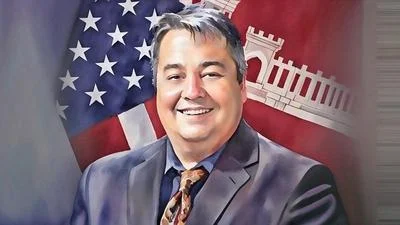A man who illegally bought and transported black rhino horns from Oregon to Iowa pled guilty today in federal court in Cedar Rapids.
James Hess, 39, from Maquoketa, Iowa, was convicted of one count of violating the Lacey Act, which prohibits interstate trade in certain wildlife, including wildlife determined to be endangered under the Endangered Species Act. Black rhinos are endangered and it is illegal to traffic in their horns across state lines.
In a plea agreement, Hess, who is a taxidermist, admitted that he contacted an individual in Oregon who was trying to sell a pair of black rhino horns online. Hess reached an agreement to buy the rhino horns and told the seller that he had arranged to further sell the horns to a different person in Oregon. Hess further admitted that when meeting the seller in Oregon he gave the seller an Oregon driver’s license purporting to be for the buyer for the horns. Instead of reselling the horns in Oregon, Hess shipped the horns back to Maquoketa and then gave the horns to someone else in Iowa. Hess also admitted to receiving half of the profits this person expected to receive from a further sale of the horns.
Rhinoceros are herbivores of prehistoric origin and among the largest remaining mega-fauna on earth. They have no known predators other than humans. All species of rhinoceros are protected under United States and international law, and all black rhinoceros species are endangered. Since 1976, trade in rhinoceros horn has been regulated under the Convention on International Trade in Endangered Species of Wild Fauna and Flora (CITES), a treaty signed by 178 countries around the world to protect fish, wildlife and plants that are or may become imperiled due to the demands of international markets. Nevertheless, the demand for rhinoceros horn and black market prices have skyrocketed in recent years due to the value that some cultures have placed on ornamental carvings, good luck charms or alleged medicinal purposes, leading to a decimation of the global rhinoceros population. As a result, rhino populations have declined by more than 90 percent since 1970. South Africa, for example, has witnessed a rapid escalation in poaching of live animals, rising from 13 in 2007 to 668 in 2012.
Sentencing before United States District Court Chief Judge Linda R. Reade will be set after a presentence report is prepared. Hess was released on conditions set by the Court pending sentencing. Hess faces a possible maximum sentence of five years’ imprisonment, a $250,000 fine, a $100 special assessment, and three years of supervised release following any imprisonment.
The case is being prosecuted by Assistant United States Attorney Anthony Morfitt. The case was investigated as a part of “Operation Crash," a continuing nationwide investigation by the Department of the Interior’s Fish and Wildlife Service to investigate and prosecute those involved in the black market trade of endangered rhino horns.
Court file information at https://ecf.iand.uscourts.gov/. The case file number is 15-CR-41.
Follow us on Twitter @USAO_NDIA.
Source: U.S. Department of Justice, Office of the United States Attorneys







